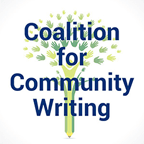Document Type
Article
Abstract
At a time when accusations of American ignorance and anti-intellectualism are ubiquitous, this article challenges problematic assumptions about intellectualism and proposes an expanded view of intellectualism. It is important to recognize and to challenge narrow views of intellectualism because they not only influence public perceptions of and engagement with education and intellectualism, but they also affect what and how we teach in U.S. schools and aid in institutionalizing social hierarchies that privilege the knowledge, learning sites, and educational experiences of the cultural elite. To demonstrate the benefits of revising our views of intellectualism, I draw upon my observations of and interviews with adult learners participating in GED-preparation writing workshops.
Recommended Citation
Bradbury, Kelly S. “Intellectualizing Adult Basic Literacy Education: A Case Study.” Community Literacy Journal, vol. 6, no. 2, 2012, pp. 1–21, doi:10.25148/clj.6.2.009391.

